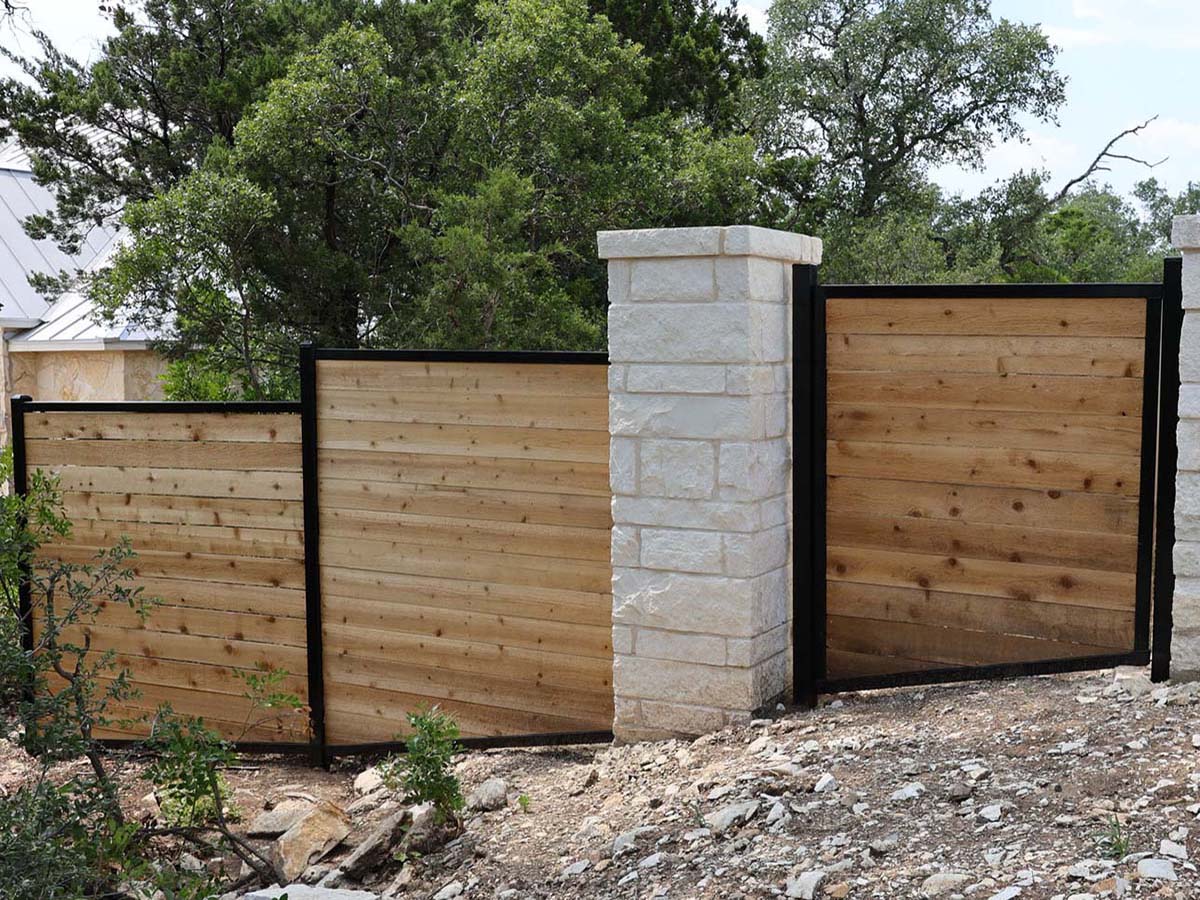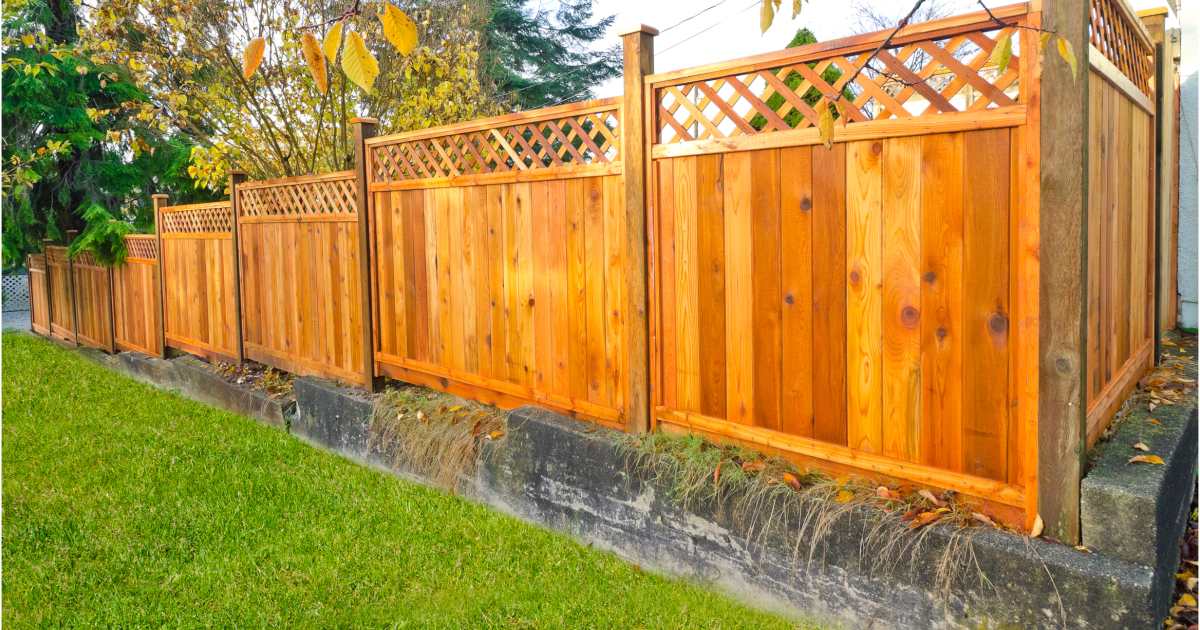All Categories
Featured
When you choose to mount a fencing around your property, it's vital to comprehend the permit requirements particular to your location. While setting up a fencing can feel like a simple home renovation job, neighborhood legislations and guidelines should be followed to make sure the setup is compliant and lawful. Falling short to protect the appropriate licenses might lead to penalties or perhaps need you to eliminate the fence. Right here's a detailed check out the licenses you may require for fencing installment.
Why Do You Required a License for Fencing Installation? A fence is greater than simply an obstacle between properties-- it can affect security, building worth, visual appeals, and also environmental problems. Neighborhood federal governments need authorizations to ensure that fencings satisfy certain requirements and do not trigger problems for utilities, next-door neighbors, or the neighborhood all at once. Authorizations also ensure that the setup abides with zoning laws, developing codes, and safety and security laws.
![]()
Sorts Of Licenses You Might Require. Structure Permit. A structure permit is among the most common authorizations needed for fencing installment. This license makes certain that the fence satisfies neighborhood building ordinance. If you're building a fence over a particular height (commonly over 6 feet), you'll likely require a building authorization. The neighborhood structure department will normally analyze the website and testimonial strategies to make sure the framework is stable and does not obstruct public rooms or develop hazards.
Zoning Authorization. A zoning permit ensures your fence conforms with height, obstacle, and location regulations. Fencings may need to be established back a certain distance from pathways, roads, or residential or commercial property lines to prevent obstruction or interference with energies.
HOA Approval. You may need to look for authorization before setting up a fencing if your home is part of a home owners organization (HOA) HOAs usually have guidelines that regulate the aesthetic appeals and framework of fences to guarantee they agree with the area. You may require to submit your plans for approval, and the HOA might restrict fence elevation, style, or material.
Specialized Permits. In some areas, there might be additional authorizations needed for details circumstances. For example, if your fencing is near a secured environmental area or situated in a flooding zone, you may need to get specialized authorizations associated to ecological influence. Similarly, if the fence remains in an area with below ground energies, you might need to get clearance to prevent destructive pipelines or cords.
![]()
Easement or Energy Company Approval. Prior to setting up a fencing, it's critical to check whether the residential or commercial property includes an easement, such as an utility easement, which could influence where you can put your fencing. Easements are locations of land marked for personal or public utilities, and you might require permission from the utility firm or other authority to construct within this area.
Just How to Figure Out What Permits You Need. To ensure that you're adhering to all the required regulations, right here's how you can determine the certain authorizations required for your fencing installment:
![]()
Browse Through Your City Government Office: The first step is to inspect with your neighborhood building or zoning department. Numerous cities and counties have guidelines available online that specify what kinds of permits are required for fencing installment. Otherwise, calling or checking out the workplace personally can aid clear up the procedure. Check Your City's Website: Several districts supply details regarding fence setups and the permits required via their official sites. Some web sites even permit you to send applications on-line. Speak With a Fencing Setup Expert: If you're unsure regarding neighborhood policies, a professional fence specialist can help. They recognize with the allowing process and can assist you via the steps. The Consequences of Not Getting a License. Failing to safeguard the essential permits prior to setting up a fence can result in considerable effects. You might be fined or needed to eliminate the fence completely.
Final thought. Installing a fencing around your house can add both safety and security and aesthetic allure, yet it is very important to ensure you're following the lawful action in the procedure. Looking into the certain permit requirements for your area, including structure authorizations, zoning policies, HOA authorization, and utility authorizations, will aid guarantee your fencing installation goes efficiently. Putting in the time to understand these needs now can save you from costly mistakes and possible lawful problems down the line.
Why Do You Required a License for Fencing Installation? A fence is greater than simply an obstacle between properties-- it can affect security, building worth, visual appeals, and also environmental problems. Neighborhood federal governments need authorizations to ensure that fencings satisfy certain requirements and do not trigger problems for utilities, next-door neighbors, or the neighborhood all at once. Authorizations also ensure that the setup abides with zoning laws, developing codes, and safety and security laws.

Sorts Of Licenses You Might Require. Structure Permit. A structure permit is among the most common authorizations needed for fencing installment. This license makes certain that the fence satisfies neighborhood building ordinance. If you're building a fence over a particular height (commonly over 6 feet), you'll likely require a building authorization. The neighborhood structure department will normally analyze the website and testimonial strategies to make sure the framework is stable and does not obstruct public rooms or develop hazards.
Zoning Authorization. A zoning permit ensures your fence conforms with height, obstacle, and location regulations. Fencings may need to be established back a certain distance from pathways, roads, or residential or commercial property lines to prevent obstruction or interference with energies.
HOA Approval. You may need to look for authorization before setting up a fencing if your home is part of a home owners organization (HOA) HOAs usually have guidelines that regulate the aesthetic appeals and framework of fences to guarantee they agree with the area. You may require to submit your plans for approval, and the HOA might restrict fence elevation, style, or material.
Specialized Permits. In some areas, there might be additional authorizations needed for details circumstances. For example, if your fencing is near a secured environmental area or situated in a flooding zone, you may need to get specialized authorizations associated to ecological influence. Similarly, if the fence remains in an area with below ground energies, you might need to get clearance to prevent destructive pipelines or cords.

Easement or Energy Company Approval. Prior to setting up a fencing, it's critical to check whether the residential or commercial property includes an easement, such as an utility easement, which could influence where you can put your fencing. Easements are locations of land marked for personal or public utilities, and you might require permission from the utility firm or other authority to construct within this area.
Just How to Figure Out What Permits You Need. To ensure that you're adhering to all the required regulations, right here's how you can determine the certain authorizations required for your fencing installment:

Browse Through Your City Government Office: The first step is to inspect with your neighborhood building or zoning department. Numerous cities and counties have guidelines available online that specify what kinds of permits are required for fencing installment. Otherwise, calling or checking out the workplace personally can aid clear up the procedure. Check Your City's Website: Several districts supply details regarding fence setups and the permits required via their official sites. Some web sites even permit you to send applications on-line. Speak With a Fencing Setup Expert: If you're unsure regarding neighborhood policies, a professional fence specialist can help. They recognize with the allowing process and can assist you via the steps. The Consequences of Not Getting a License. Failing to safeguard the essential permits prior to setting up a fence can result in considerable effects. You might be fined or needed to eliminate the fence completely.
Final thought. Installing a fencing around your house can add both safety and security and aesthetic allure, yet it is very important to ensure you're following the lawful action in the procedure. Looking into the certain permit requirements for your area, including structure authorizations, zoning policies, HOA authorization, and utility authorizations, will aid guarantee your fencing installation goes efficiently. Putting in the time to understand these needs now can save you from costly mistakes and possible lawful problems down the line.
Latest Posts
Safeguard Your Financial Investment with Professional Seamless Gutter Installation
Published May 25, 25
1 min read
Explore the Premier Auto Repair Coupons in Montclare, Chicago
Published May 22, 25
1 min read
Discover Montclare Auto Repair’s Premier Auto Repairs and Why Drivers Trust Them
Published May 22, 25
1 min read
More
Latest Posts
Safeguard Your Financial Investment with Professional Seamless Gutter Installation
Published May 25, 25
1 min read
Explore the Premier Auto Repair Coupons in Montclare, Chicago
Published May 22, 25
1 min read
Discover Montclare Auto Repair’s Premier Auto Repairs and Why Drivers Trust Them
Published May 22, 25
1 min read